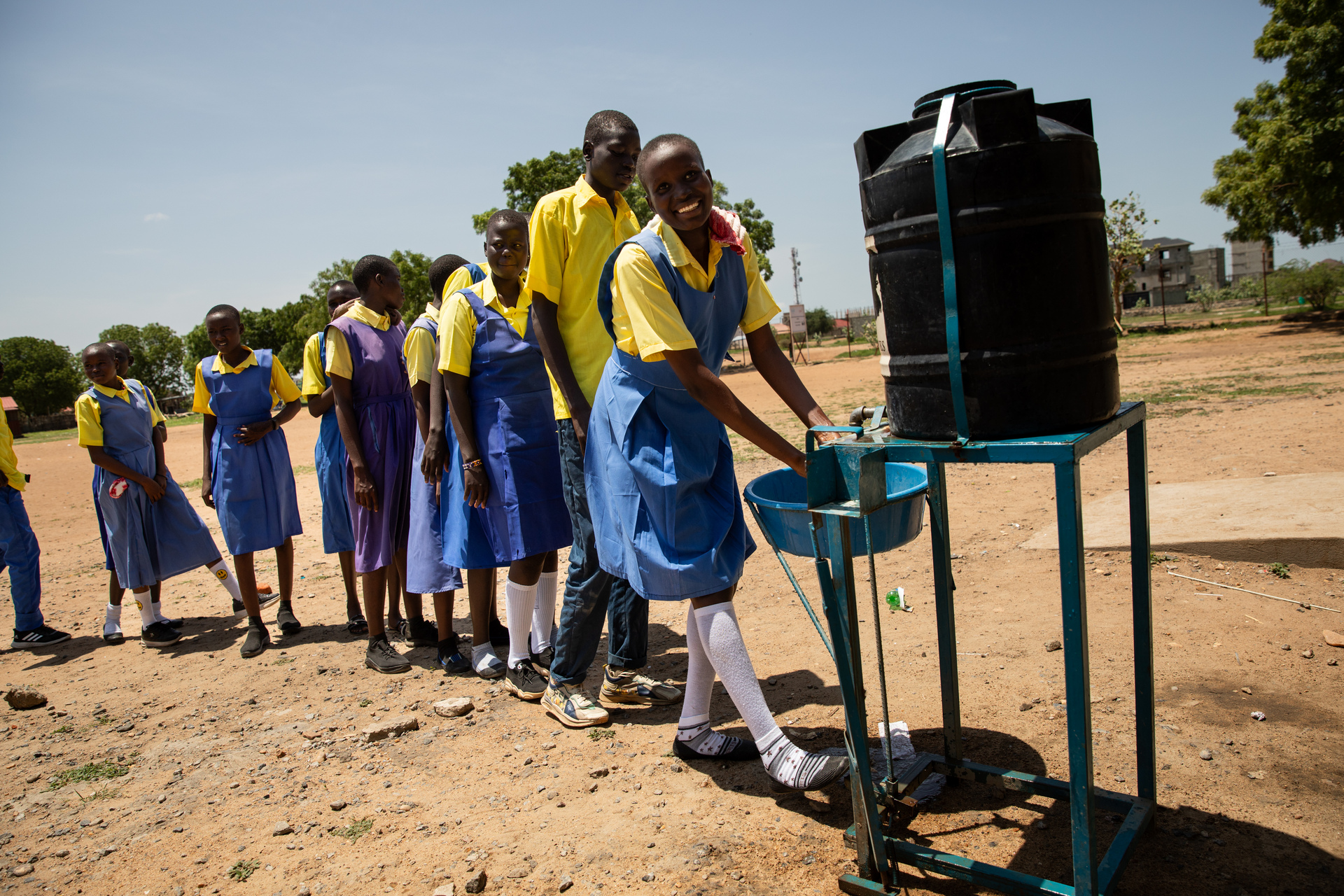
Supporting the World Food Programme’s School Feeding initiative in South Sudan
Grantee: World Food Programme
Location: South Sudan, Africa
Grant Cycle: 2025 – 2027
Type of Grant: three-year program support, Protracted Emergency Relief
Website: www.wfp.org
Human Welfare
& Rights
The World Food Programme (WFP), established in 1961, is the largest humanitarian organization fighting hunger globally. In 2024 alone, WPF reached 124 million people in more than 120 countries and territories. On any given day, WFP has 5000 trucks, 190 ships, and 80 aircraft on the go, delivering food and other aid to communities in need. Beyond providing emergency food relief in contexts of conflict, natural disasters and other emergencies, WFP also promotes long- term food security through initiatives that strengthen community resilience, agricultural infrastructure, supply chains and local food systems.
South Sudan, the world’s youngest nation, continues to struggle to overcome a multitude of challenges. Conflict, climate shocks, economic instability and the ongoing war in neighbouring Sudan have created a perfect storm of suffering, leaving families unable to access enough food. Today, 7.7 million people (over half the population) are acutely food insecure or worse, with hunger reaching near-record levels. The situation is particularly dire for children: more than 2.3 million are at risk of malnutrition, up more than a third compared to 2024. A total of 2.8 million children are out of school, more than half of them girls. Female literacy remains alarmingly low at just 29 percent, compared to 40 percent for men, among the lowest rates in the world. Food assistance remains essential to averting a humanitarian catastrophe. But it must also serve as a bridge to long-term recovery. WFP is working with local civil society and empowering communities, especially women and girls, to build resilience, support peacebuilding and foster self-reliance in the face of relentless adversity.
The Nando and Elsa Peretti Foundation (NaEPF) has been active in South Sudan since 2017, when famine triggered one of the world’s gravest humanitarian emergencies. At a time when donor fatigue and political uncertainty constrained international support, the NaEPF recognised the urgency of the situation and financed a multi-sectoral humanitarian response through eight trusted partners, including the World Food Programme. In 2025, reaffirming its long-standing commitment to South Sudan, the NaEPF renewed its partnership with WFP by supporting its school feeding programme in South Sudan’s Lakes State for a three-year period. The initiative aims to reach approximately 6,555 schoolchildren enrolled in 12 schools across Cueibet County, improving both nutrition and access to education.
School feeding represents a vital social safety net for children from vulnerable households. It enhances learning outcomes, tackles short-term hunger, improves health and nutritional status, and helps reduce the risk of early pregnancy and child marriage among girls. In South Sudan, WFP implements school feeding through on-site hot meals, take-home rations, and cash-based transfers that allow schools to purchase fresh local ingredients to enhance the nutritional quality of meals. In selected schools, a home-grown school feeding model is also adopted, which supports and connects local framers and producers with schools, strengthening food systems and community resilience.
Globally, school feeding programmes have shown remarkable returns: every USD 1 invested generates an average of USD 9 in economic benefits. In South Sudan, the initiative has already demonstrated measurable improvements in school enrolment and attendance rates. Yet with more than 2.8 million children still out of school, continued investment in school feeding as a key social protection measure remains essential.
The NaEPF-supported project will provide school meals to 6,500 children for 170 school days each year through a cash-based transfer initiative. Implemented over three years, it seeks to promote regular attendance and improve learning outcomes in Lakes State, a region severely affected by flooding in late 2024. The project is also expected to bring wider community benefits: around 3,000 smallholder farmers, most of them women, will gain from increased demand for local produce, while 10 local retailers will benefit from procurement contracts. This integrated approach fosters community development and economic empowerment, creating positive ripple effects that enhance overall well-being.
“The best thing about coming to school is to get more for my mind, or knowledge from our teachers so that also I can give this outside, to those who are outside also”
James Student in Juba, South Sudan



